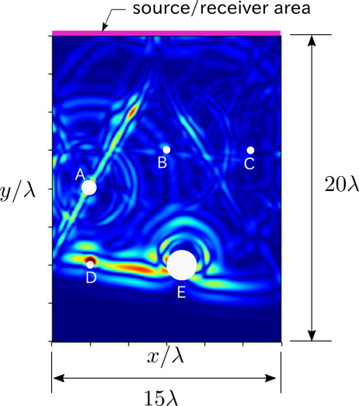Example
Computerized Ultrasonic Nondestructive Methods for an Efficient Maintenance of Steel Structures
Background
There are a number of aging steel bridges in Japan that are needed to be managed carefully by monitoring structural integrity closely. To do so, flaws such as cracks or voids hidden in aging structures have to be detected and characterized nondestructively. Ultrasonic nondestructive testing (UT) has been considered as one of the most useful methods for flaw characterize. However, objective interpretation of UT results has always been problematic because quantitative model to analyze underlying wave physics is often costly or not available at all.
Objectives and expected effects
In this project, a computer simulation platform is being developed to aid all aspects of UT, i.e., ultrasonic transmission, reception, signal processing, imaging and optimization. More precisely, the platform is to be composed of a suit of UT modeling tools, wave propagation solver, and a time-reversal imaging routines. When the project is completed, the simulation platform would be able to support the design and implementation of a high-definition UT leading ultimately to the reduction of cost for the management of deteriorating steel structures.


Representative
